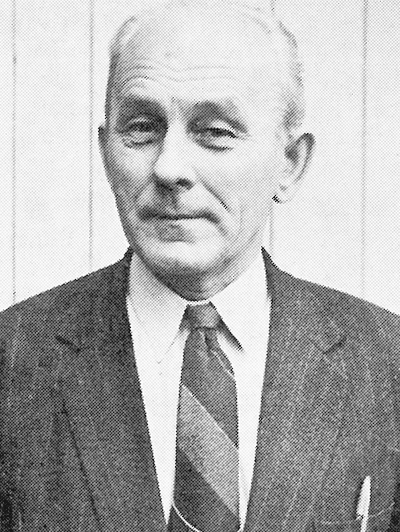Andrejs Pommers
1904-1980
Conductor, public worker
Andrejs Pommers was born on 22 July 1904 in St. Petersburg in a Latvian family. At the age of seven, he began to study piano with the well-known organist Janis Turss (Jānis Turss). His father taught him Latvian folk songs, singing the second voice himself; those were songs which he had either learned in a choir or improvised by himself. Andrejs also practised this singing technique and, among his friends, was happy to sing as the second voice. He studied piano until the age of 14, and organ for the last two years of this period.
After the First World War and the establishment of the Latvian state, the family returned to Riga where Pommers continued his education at the Riga City Technical School and joined the school choir (later also the double quartet) led by conductor K. Pukis (K. Pūķis.) The conductor noticed his abilities and commissioned him to train voices for the 1922 Youth Song Festival. During his compulsory military service, he was asked to organise and direct a men's choir. When Leonids Vigners (Leonīds Vīgners) took over the leadership of men's choir "Dziedonis", Pommers also joined it with the task of training individual voices. He wrote in his notes about this time: "It was not easy to please the intolerant owner of a perfect pitch but I will remember with awe and gratitude the time I spent with him."
The real work of leading the choir, however, began when Pommers worked as an assistant conductor in Vigner’s men’s choir. Later, he was entrusted with the Aviation Regiment Men's Choir which he led until the regiment was dissolved. In the meantime, he conducted several smaller choirs and organised the male double quartet "Daugaviesi" in which he himself sang the second tenor voice. During this time, he made several radio appearances.
During the Second World War, he went into exile to Germany. There he founded and directed camp choirs in Lübeck and Neustadt, and also served as organist in the local congregation. As the Latvian camps emptied, he moved to England and settled in Bolton. In 1948, he organised the Bolton branch of the Latvian Society of Great Britain (LSGB) and its mixed choir and drama (theatre) group, while also serving as organist in the Manchester congregation. Pommers was invited by the men's choir "Dzintarzeme" to be its conductor, and he led the choir until its dissolution. Later, he also became the conductor of the Daugava Men Choir and taught young people to play the kokle (Latvian string instrument).
He did not avoid his responsibilities and workload and was an active public worker. He was the chief conductor at the 4th English Latvian Song Days in Manchester in 1954 and was also chairman of the organising committee of this event; was the chief conductor at the 5th and 6th English Latvian Song Days (in Leicester in 1958 and in Bradford in 1961). He also spent much time and energy working for the Bolton branch of the Daugavas Vanagi Foundation (DVF) and preparing the musical part of the Global Daugavas Vanagi Days. The Daugavas Vanagi, in recognition of Pommer's work in exile, have awarded him the highest honour – a golden badge.
Pommers was faithful to his promise until the end of his days: "I want to nurture the Latvian song until my strength runs out." In 1974, on the Open-Air Song Day in Rowfant, he stood in front of the grand choir for the last time. Shortly afterwards, he suffered a severe heart attack, causing partial paralysis and leaving him unable to work. While nursing him, his wife Milda, who had always accompanied him in all his musical endeavours, passed away in 1979. After a battle with pneumonia and the after-effects of a recurrent heart attack, Pommers passed away in Bolton District Hospital in the early hours of 14 May 1980. He was buried in the Bolton Latvian Cemetery.
Information sources
Jērums, A. (1974, 9. augusts). Diriģentam Andrejam Pommeram 70 gadi. Londonas Avīze, 1439, 2. Londonas Avīze, Nr.1439 (09.08.1974) (periodika.lv)
Miris diriģents Andrejs Pommers. (1980, 30. maijs). Londonas Avīze, 1726, 5. Londonas Avīze, Nr.1726 (30.05.1980) (periodika.lv)
V. (1978, 24. augusts). Sēra jubileja. Londonas Avīze, 1687, 2. Londonas Avīze, Nr.1687 (24.08.1979) (periodika.lv)
